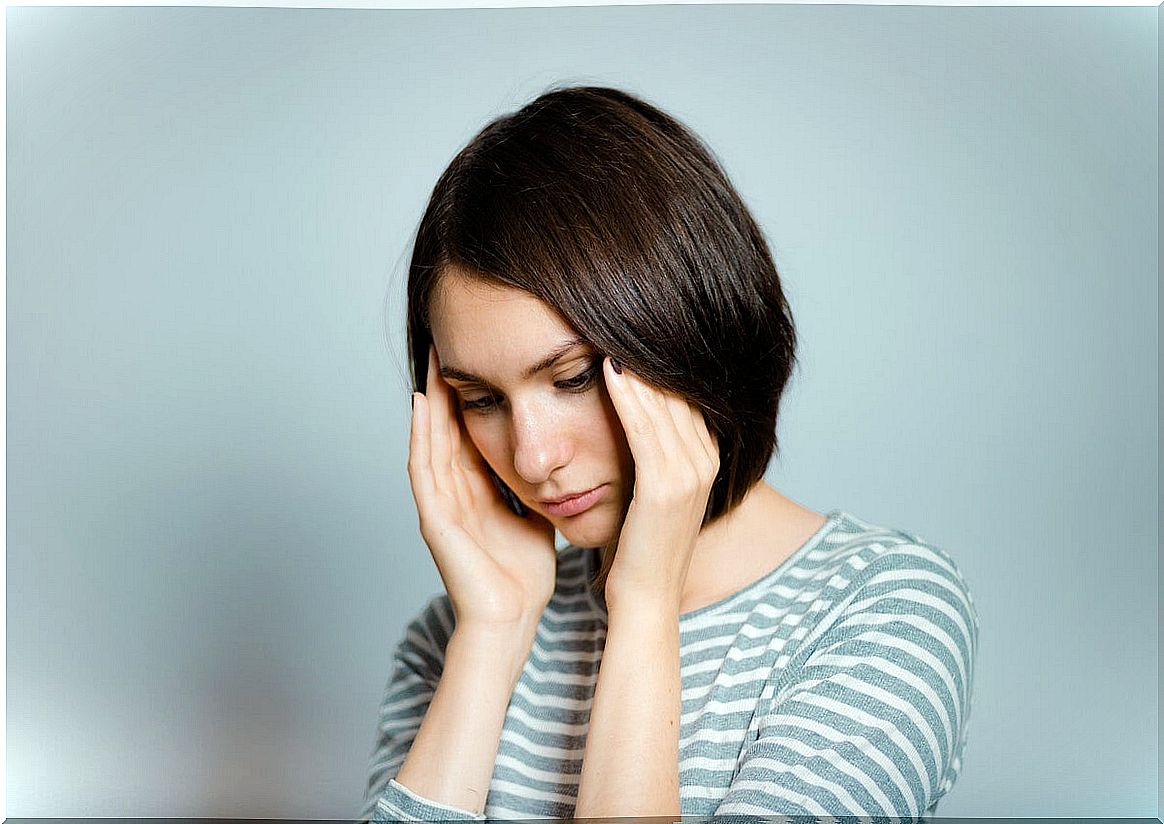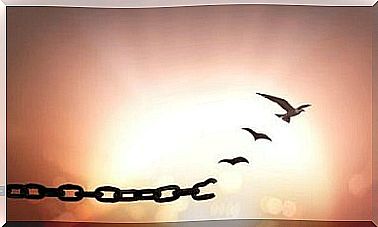Emotions And Physical Pain: How Are They Related?

Emotions and physical pain are almost directly related that many of us have experienced on more than one occasion. That problem at work that turns, sometimes, into discomfort and heartburn. An argument with the partner that leads to headaches. The worry about what we have been putting off for a long time that turns into back pain and even cramps …
We could also speak of another phenomenon: that of the “broken heart.” When we live an experience of these characteristics, the one in which love ends, we are abandoned or betrayed, the emotional suffering is immense and even devastating in every way. So much so that the body also feels the impact.
Tiredness, dejection, lack of energy and even numbness of muscles and joints appear. Why happens? How is it possible that our bodies ache in such a way when worries are elevated or our hearts break? We analyze it.

Emotions and physical pain: this is how they relate
For many decades now, both psychology and medicine have found a close correlation between emotional pain and physical pain. This phenomenon, which we call “somatization”, shows us the union between mind and body, something that, as we well know, was questioned in past centuries with the classic Cartesian model.
In this way, something that many doctors know well is how the diagnosis of depression itself tends to increase the appearance of headaches, muscle aches, digestive disorders and even worsens the condition of patients with chronic pain. Moreover, from the field of neurobiological research we are told that a good part of the forms of physical pain is related to emotional stress.
Studies such as the one carried out at Duke University, in North Carolina, United States, indicate that within the clinical setting and especially in primary care, psychological and emotional factors should be considered when making a diagnosis. Perhaps, for example, that stomach pain is not caused by an ulcer but by an anxiety disorder.
Sadness and anger, the emotions with the greatest impact on the body
Dr. Afton Hassett is a research scientist at the Center for Fatigue and Chronic Pain Research at the University of Michigan in the United States. Something that this expert highlights is that the wide range of emotions that human beings experience have an impact on the body ; Both positive and negative.
- That imprint can be flattering or painful. Thus, among those emotions less pleasant for the organism, are sadness and anger. Having suffered, for example, abuse in childhood, suffering the pain of the abandonment of one of the parents, suffering a loss or having gone through a complicated emotional relationship all have an imprint on the body.
- The range of physical symptoms is very wide, the most common being back pain. Also, in this link between emotions and physical pain, it is important to highlight anger. Dr. Hassett points out how the most irascible people or those who have been hiding their feelings and discomforts for a long time show, on average, a greater hypersensitivity to pain. Likewise, they are also more prone to stomach pain, migraines, joint pain …
Emotions and physical pain: which is more intense?
What hurts the most? The loss of a loved one or the break of a bone? The abandonment of the partner or a burn on the skin? Regardless of how contradictory these questions may seem, there seems to be a clear answer: emotional pain hurts more than physical pain.
This is indicated by a study published in the journal Psychological Science and carried out by doctors Adrienne Carter-Sowell, Zhanheng Chen. The keys to understanding this relationship between emotions and physical pain are in the following points:
- Emotional suffering can be long-lasting in many cases. While physical pain is temporary, the pain that emotions leave us can last for years and even a lifetime.
- There is another interesting question: we are not good managers of negative valence emotions. Thus, factors such as not properly processing the grief due to a loss or a breakup can chronify that suffering. The same happens with the anger mentioned above. If we have spent years hiding our frustrations and anger in the face of certain events or circumstances, that anger ends up impacting the body.
- On the other hand, the authors of this work point out something interesting. Physical pain cannot be relived, on the other hand, people are very prone to activate emotional pain over and over again. That is to say, we cannot feel the impact of a broken bone in the same way, but we can live the suffering again due to that adverse event of yesterday.
We know that emotions and physical pain are the reverse of the same coin. We suffer it often: that discomfort in the chest, those cramps, that aching neck, that stabbing pain in the temples … What can we do in these circumstances? The answer is simple but complex to apply: we must train ourselves in emotional management. We must not leave for tomorrow what worries and hurts today.
A discussion that ends badly, stress that is not managed, a concern that we do not resolve, a painful break from which we cannot turn the page … All of this leaves consequences that go beyond the mind. Let’s keep it in mind: if we cannot handle emotional pain alone, there are always good professionals who can help us.









